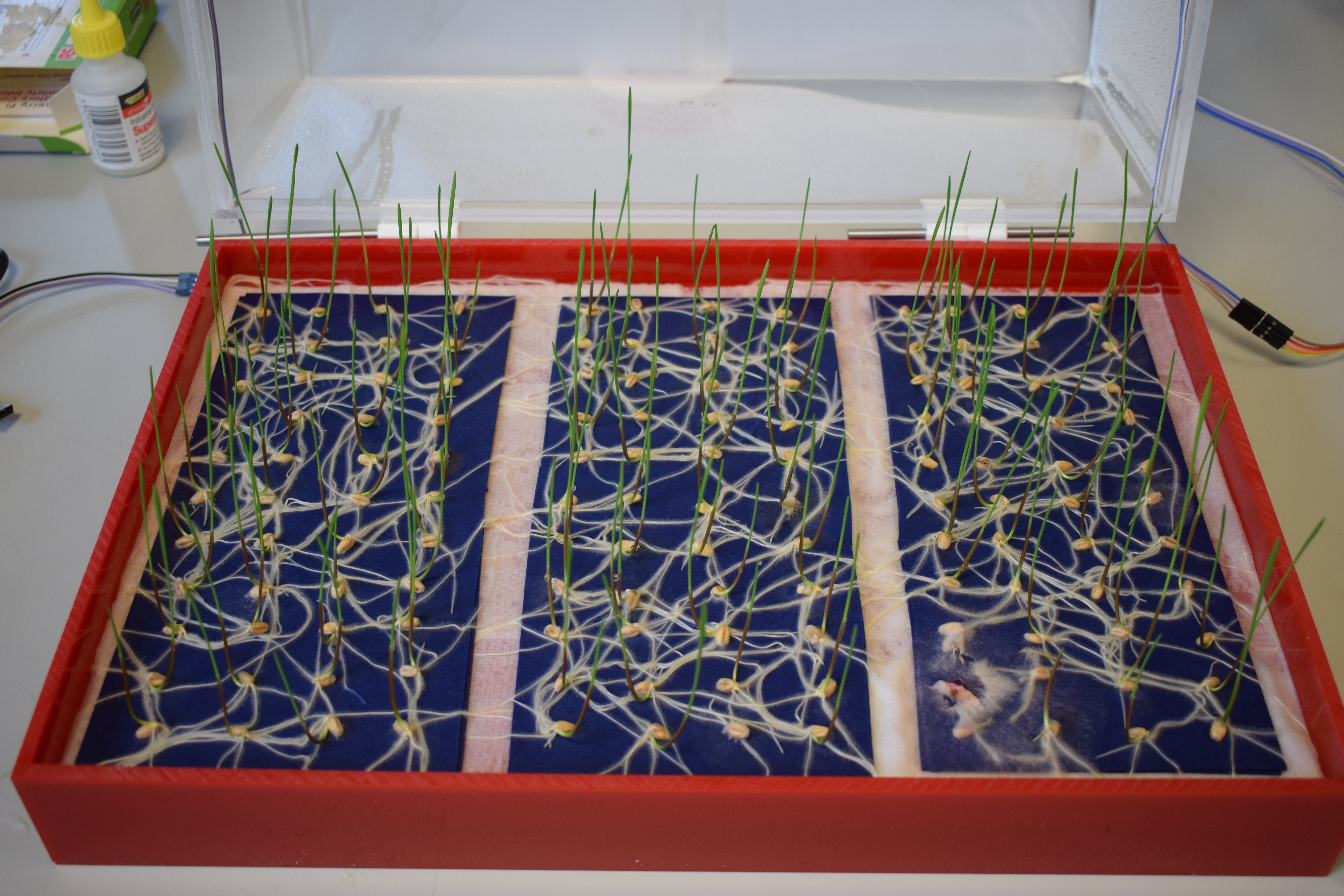United Kingdom
June 30, 2020
Seeds are essential for food and farming, and ensuring healthy and consistent germination is vital. SeedGerm provides a cost-efficient, semi-automated, high-throughput and robust method to score seed germination based on machine learning-driven image analysis, and can effectively replace lengthy and error-prone manual assessments

Farmers need seeds that germinate effectively and uniformly within a given time frame in order to maximise efficiency. Seed companies must therefore carry out laborious and time-consuming tests to guarantee a certain germination rate is met. SeedGerm offers an easy-to-use, low-cost and scalable solution to this problem - and a handy application of machine learning. The product of a collaboration between the Earlham Institute (EI), the John Innes Centre (JIC), Syngenta and NIAB has today been published, open access, in New Phytologist, along with the open-source software and data.
Publication: https://nph.onlinelibrary.wiley.com/doi/abs/10.1111/nph.16736
A cabinet is equipped with cameras that take photographs throughout the germination process, documenting each stage from imbibition (seeds taking up water) through to the emergence of the root and further changes in the newly growing plant.
Supervised machine learning is used to automatically determine how germination is progressing through comparing images. For example, algorithms can be trained to predict how likely it is that a seed has germinated based on measurements extracted from an image that relate to the seed’s size, shape, and colour.
Josh Colmer, a PhD student in the Anthony Hall Group at EI and first author on the paper, said: “To apply machine learning so effectively to test seed germination marks an exciting step forward, especially as the learnings from this project can inform a variety of image-based analyses with wide-ranging applications in crop research.”
Seed germination experts from Syngenta confirmed the effectiveness of SeedGerm for measuring germination rate and seedling health across five major crop species, including tomato and rapeseed. There is potential to replace manual seed scoring, while also contributing to seed certification, seed insurance and sowing guidance.
The power of SeedGerm to measure phenotypic changes over time has further novel applications in crop improvement research. For example, many of the characteristics that can be measured have an effect on estimating performance in the field in terms of canopy closure, weed suppression and predicted yield.
Excitingly, the application of SeedGerm to a Genome Wide Association Study of rapeseed unearthed a chromosome region that explained the difference between low- and high-germinating seeds at JIC. Interestingly, a gene in that region is related to one involved in abscisic acid (ABA) signalling in Arabidopsis, which offers an interesting target for future studies and highlights the usefulness of SeedGerm in measuring the effect of genetic changes.
Dr Ji Zhou, formerly of EI and now Head of Data Science at NIAB, said: “We are excited to work jointly with EI and JIC to accomplish this seed germination research, which will provide next-generation solutions for both academic and industrial applications - strengthening the UK’s core competence in data science, Agri-Tech innovations, and AI-based crop informatics.”
Carmel O’Neill, Research Assistant in the Penfield Group at JIC, said: “Most seed germination is still recorded manually. Against this, SeedGerm presents fast, accurate, high throughput screening and will be of major interest to crop seed production companies and research programs screening large germplasm collections.”
“The developments and learnings from SeedGerm are truly a big step forward in automation and generating high quality and reliable data in scoring seed germination,” said Dr Rene Benjamins, Senior Scientist at Syngenta Seeds. “This will help seed companies like Syngenta in providing the best quality to their customers.”
Josh Colmer is a BBSRC funded NRPDTP student.